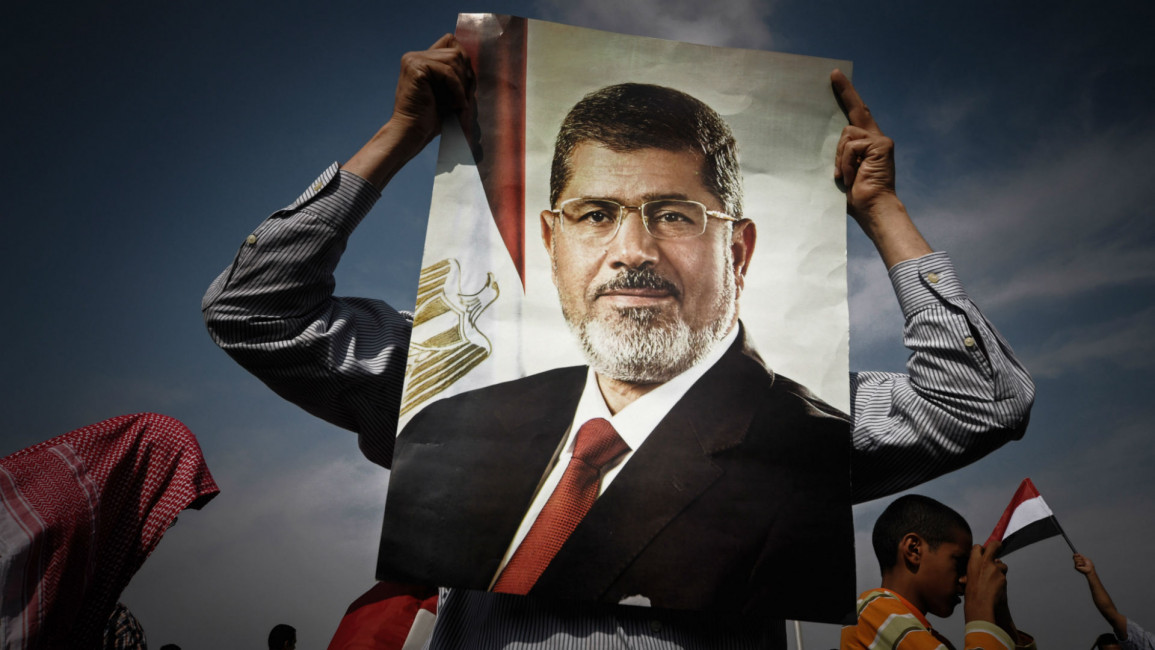
Political Islam in Egypt is not yet dead
Egyptians remain divided over the death sentence handed out to deposed Egyptian President Mohamed Morsi and a number of Muslim Brotherhood leaders.
Some argue the sentences are a bid to eliminate the Muslim Brotherhood and its ideology. Others view the mass death sentences as a symptom of a failing justice system, and a reflection of the predicament the regime finds itself in.
These sentences are reminiscent of the oppression of Turkish Islamists during the 1970s, 1980s and 1990s.
Although Islamism in Turkey and Egypt have different histories, Morsi can be compared to a former prime minister of Turkey, the Islamist Necmettin Erbakan.
They were both the first leaders of Islamic political groups to head their states. Both were overthrown by a military coup less than a year after they rose to power. They were then both detained or placed under house arrest, tried, and given harsh sentences.
After their overthrow, both men's parties were banned, and there was an all-out war against their supporters.
| Will Morsi's Muslim Brotherhood re-emerge under new leadership? |
The strict measures taken to uproot both Islamist movements caused a political crisis, heightened social tension, and caused a deterioration in economic conditions.
Erbakan became prime minister in 1996. He was forced to resign in 1997 under pressure from the army, before being placed under house arrest, tried and sentenced to two years and four months in prison.
Morsi was elected president in 2012, before he was outsted by the army in 2013, imprisoned, tried and given the death sentence.
Erbakan's Welfare Party was accused of violating the secular foundations of the Turkish republic and dissolved. Morsi's Justice and Freedom Party was accused of violating the conditions governing the work of political parties, dissolved and designated a "terrorist organisation".
In both cases, the courts took their orders from the military, and their decisions were considered final.
Some thought this was the end of both leaders and their parties' political futures.
However, in Turkey, after the crisis, the Islamist movement returned under the leadership of Abdullah Gul and Recep Tayyip Erdogan, who founded the now-ruling Justice and Development Party in 2001.
Will history repeat itself in Egypt? Will Morsi's Muslim Brotherhood re-emerge under new leadership?
The most important lessons to be learned from the Turkish Islamist experience is the importance of flexibility, compromise, and the reordering of priorities. Also the need to avoid clashing with authorities and society, and to patiently draft strategy and objectives.
Perhaps the most prominent Islamist movement trying to emulate the Turkish experience in the region today is the Ennahdha Party in Tunisia. Once, the writings of Ennahdha leaders guided Turkey's Islamists, but today the Turkish experience has become the guiding light.
Political Islam in Egypt, despite all its failures, setbacks, ordeals, and tragedies is not yet dead.
Ali Anouzla is a Moroccan journalist and editor-in-chief of Lakome.
This article is an edited translation from our Arabic edition.
Opinions expressed in this article remain those of the author and do not necessarily reflect those of al-Araby al-Jadeed, its editorial board or staff.




